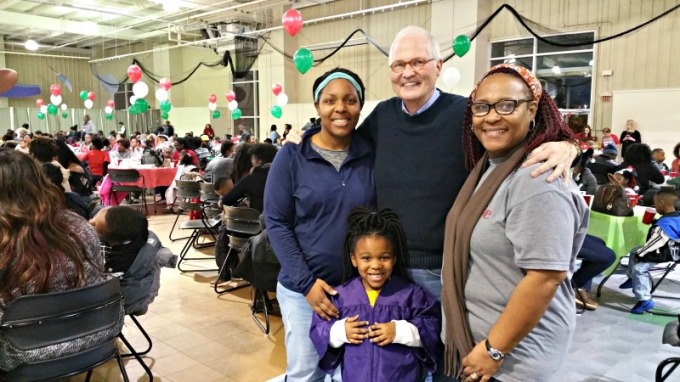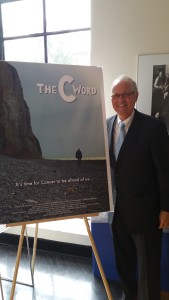You never know when one simple act might have long term implications, even long after you’ve forgotten it.
Last week, my wife Mary and I went to the Perea Christmas party, as we always do when the holidays approach. Perea is the preschool in N. Memphis that Church Health has run for almost 18 years. We have 149 three- and four-year-old students enrolled this year, and our teachers make a profound difference in their lives.
The Christmas party was fun, as it always is; after years of parties, Alicia Norman and her staff have perfected the party agenda down to the minute. We begin with dinner, and then the kids present their program. The children sing carols they worked weeks to learn, hand motions and all. Then the Three Wise Men, Mary, Joseph and a baby doll Jesus reenact the Christmas story. Mind you, since Mary, Joseph and the Three Wise Men are three- and four-year-olds dressed in oversized robes and crowns, wardrobe malfunctions are always par for the course. The party is then wrapped up with a competition between all of us as we sing “The Twelve Days of Christmas.” This is when Santa arrives, pandemonium breaks out, and Mary and I take our cue to make a break for the car.
This year I got a very special gift. A woman approached me and said, “You won’t remember me, but 29 years ago when Church Health first opened, I brought my daughter to you. I was a young mother and didn’t know what to do when my child began wheezing. I didn’t have insurance. Someone told me about the Church Health Center. So I came.”
She continued. “You were worried when you examined my daughter, Britney. You diagnosed her with asthma. She was the first child you admitted to LeBonheur. Thankfully, she got better in a few days. I have never forgotten how kind you were to us.”
I felt humbled. I was also embarrassed because she was right – I didn’t remember any of this. She went on. “Britney is here tonight, and her daughter, Journey, is a 4-year-old at Perea. I’ll send her over to talk to you when there is a break.”
I tried to watch the rest of the performance, but I was anxious to meet Britney. After the show wrapped, Britney came straight toward me and embraced me. It was so powerful. I learned that her husband is the admissions counselor at Memphis Theological Seminary. A few weeks ago after I spoke at the Seminary, he went home and told her about me. She interrupted him. “I know him. He was my doctor when I was a little girl.”
Just then, an adorable Perea student still in costume from the manger scene came toward us. “This is Journey,” her momma said. Britney told me that her husband has been offered a job in Austin, Texas, and they will be moving there after Christmas. I couldn’t help but think that God was smiling on me to have these few moments with them.
I’m honestly not sure what to make of this story. My chance encounter with Britney, her mother and her daughter could have only happened because we’ve kept the faith in the work we do for 29 years. Day in and day out, our staff, volunteers and supporters keep steady in our mission of healing. Sometimes, as a result of that faith, small miracles happen. Maybe “miracle” is too strong a word; maybe it was just what was supposed to happen. Britney outgrew her asthma. Her mother was strong and was always going to help her succeed, and through Britney, therefore, so will Journey.
My part was small, but I do think the impact of Church Health on this family is evident. I suspect they would agree.
We left the party when Santa arrived. I didn’t need to ask for anything. I already had received the best gift possible.



